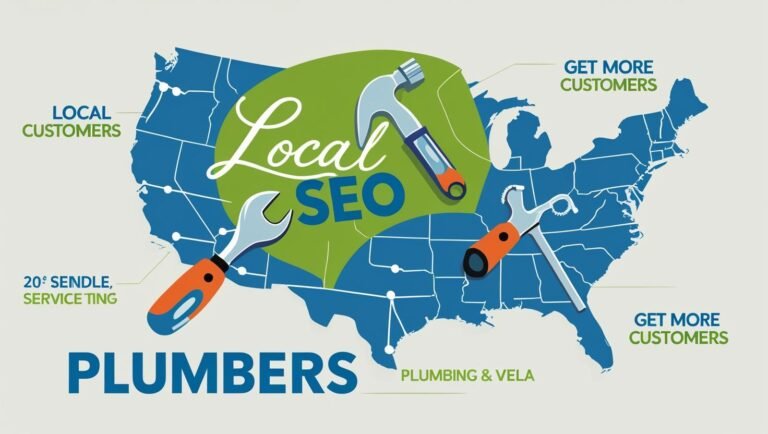E-commerce SEO Guide 2025

E-commerce SEO is the process of making your online store more visible on search engines like Google so customers can easily find your products. In today’s digital marketplace, having great products isn’t enough; your store must appear where people are searching. By applying the right SEO techniques, you can bring in a steady flow of shoppers who are already interested in what you sell.
When your store is optimized, search engines understand your website better and recommend it to users. This includes improving product pages, writing clear and useful content, and making your site fast and easy to navigate. These steps not only boost your rankings but also build trust with potential buyers.
The best part is that E-commerce SEO doesn’t just increase traffic, it drives targeted traffic. That means more of the right people visit your store, leading to higher conversions and more sales, all without relying only on expensive ads.
What is e-commerce SEO?
It is all about the methods you use to get more visibility and organic traffic for your online store in search engines like Google. These strategies focus on both the technical side of SEO and content. By improving your store, you can bring in a steady flow of targeted visitors to your site, which in turn should lead to more sales.
Why is SEO Important for e-commerce websites?
SEO is important for online stores because it helps bring more visitors and increase sales. When your store shows up higher in Google search, more people will see your products. This means you have a better chance of getting new customers.
With e-commerce SEO, you can:
- Reach people without spending money on ads.
- Build trust, because buyers trust free (organic) results more than paid ones.
- Stay ahead of other stores that are not using SEO.
How does e-commerce SEO work?
E-commerce SEO is a way to increase website traffic by improving your online store’s visibility in search engine results pages (SERPs). The higher your page ranks, the more visitors it will get.
With SEO, you don’t have to pay for every click like ads. Instead, it helps you get free and relevant traffic from search engines like Google, Bing and Yahoo.
To improve your store’s SEO, focus on your content. Write clear product descriptions, create helpful product pages, start a blog, and conduct a technical audit of your website. All these things help search engines understand and rank your store better.
For higher rankings, your website must be search engine-friendly. This means:
- Use the right keywords on your pages.
- Having a good technical setup.
- Making sure your store works well on mobile
Tips for Successful SEO in E-commerce
Here are effective SEO tips that can help your e-commerce store get more traffic and higher rankings.
- Perform Keyword Research
Keyword research helps you understand what your customers are searching for. By finding the right keywords, you can target terms that bring more traffic and sales. Use tools like Google Keyword Planner or Ubersuggest to find high-volume but low-competition keywords for your products.
- Improve Your Site’s Architecture
A clear site structure makes it easier for both users and search engines to navigate your store. Organize products into categories and subcategories and make sure important pages are easy to reach within a few clicks. This improves user experience and helps your site rank better.
- Optimize for On-Page SEO
On-page SEO means optimizing each product and category page. Add keywords naturally in titles, meta descriptions, headings and product descriptions. Use high-quality images with alt text and make sure URLs are clean and descriptive. This makes your pages more visible on search engines.
- Leverage Content Marketing
Content marketing helps attract and educate your audience. Create useful blogs, product guides or how-to articles that answer customer questions. When you provide valuable content, it not only brings traffic but also builds trust in your brand.
- Manage Your Site’s Technical SEO
Technical SEO ensures your e-commerce website runs smoothly. Improve site speed, fix broken links, use HTTPS for security, and make your site mobile-friendly. A technically sound website gives users a better experience and increases your chances of ranking higher.
- Build Backlinks
Backlinks from trusted websites signal to search engines that your site is reliable. Reach out for guest posting, collaborate with influencers, or list your products on reputable directories. Quality backlinks improve your authority and help you rank above competitors.
Turn Clicks into Customers with Smart SEO
Benefits of E-commerce SEO
E-commerce SEO offers several powerful benefits that can help your online store grow and succeed.
Better User Experience
E-commerce SEO makes your website easier to use by improving speed, navigation and mobile-friendliness. When customers can quickly find products and enjoy a smooth shopping journey, they are more likely to stay longer and buy.
Expanding Your Reach
With SEO, your store can appear in search results for many different keywords. This helps you reach a wider audience beyond your current customers, attracting people from different locations and markets.
Better Quality Traffic
SEO brings visitors who are already searching for products you sell. This means the traffic you get is more targeted, giving you a higher chance of turning visitors into paying customers.
Cost-Efficient
Unlike paid ads, SEO does not require a continuous budget to keep traffic coming. Once your site is well-optimized, it can bring long-term results at a much lower cost.
Low Maintenance
After the initial setup, e-commerce SEO does not require heavy daily work. Regular updates, fresh content, and a few technical checks are enough to keep your site performing well.
E-commerce SEO Tracking Tools
These powerful tools can help you measure, analyze, and improve your e-commerce SEO performance.
- Semrush Position Tracking
Semrush Position Tracking helps you see where your website ranks for specific keywords. You can track daily changes in rankings and compare your performance with competitors. This tool shows which keywords bring the most traffic so you can focus on the ones that matter most.
- Google Search Console
Google Search Console is a free tool that lets you monitor how your website appears in Google search results. It shows you which keywords people use to find your site, how many clicks you get and if there are any errors. This tool is very helpful for fixing problems and improving visibility.
- Google Analytics
Google Analytics helps you understand your website visitors and their behavior. You can see where your traffic comes from, which pages perform well and how customers interact with your store. By analyzing this data, you can make smarter decisions to improve sales and SEO results.
Challenges of E-commerce SEO
E-commerce SEO comes with some common challenges that can affect your store’s growth if not handled properly.
- Lack of Quality Content
Many e-commerce websites copy product descriptions from manufacturers or use very short text. This makes it hard to rank because search engines prefer unique and detailed content. To overcome this, write original product descriptions, add FAQs and create blogs that give real value to your customers.
- Forgetting About the Technical Setup
Some e-commerce stores ignore technical SEO, which is very important. Issues like slow loading speed, broken links, poor mobile design or missing sitemaps can hurt rankings. A strong technical setup ensures search engines can crawl your site easily and customers enjoy a smooth shopping experience.
FAQs
What is e-commerce SEO?
E-commerce SEO is the process of improving an online store’s visibility in search engines so more customers can find your products.
Why is SEO important for e-commerce websites?
SEO helps e-commerce websites rank higher in search results, attract more visitors, and increase sales without paying for ads.
How do I choose keywords for my e-commerce site?
You can use keyword research tools like Google Keyword Planner or Semrush to find product-related keywords that customers are searching for.

